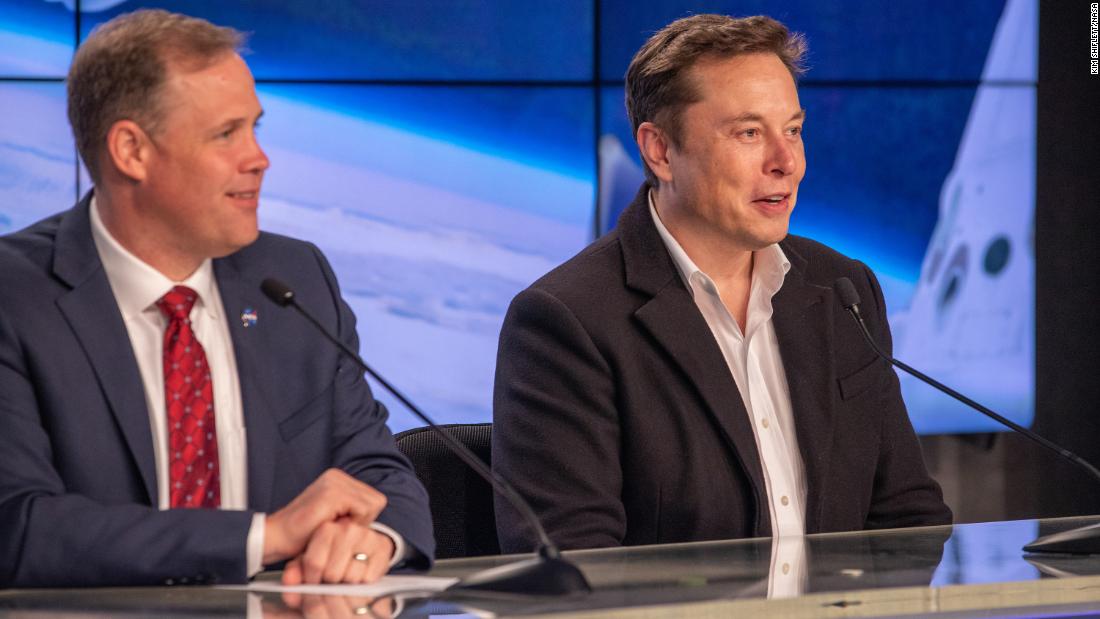
On Thursday, Bridenstine said "where we are is a very positive situation," adding that "we're very close, very confident."
The meeting took place after the NASA chief publicly chided Musk over setbacks in Crew Dragon's development, saying that the program was "years behind schedule," and that "it's time to deliver." Bridenstine and Musk continued to trade barbs in subsequent interviews with CNN Business.
NASA has been waiting since the Space Shuttle program was retired in 2011 for SpaceX and Boeing to return human spaceflight capabilities to the US space program. They were allotted $2.6 billion and $4.2 billion, respectively, in 2014. Both companies have suffered extensive delays.
In the meantime, NASA is spending $85 million per seat to fly US astronauts to the space station on Russian spacecraft.
Oversight officials have said for the past few years that funding issues played a role early on in their development process, but "technical challenges with the contractors' spacecraft designs are now driving the schedule slippages."
On Thursday, Bridenstine said he still believes it will be necessary to purchase more seats aboard Russian spacecraft in 2020 to ensure US astronauts have continued access to the space station. But he did not contradict Musk's proposed timeline of three to four months and said, "if everything goes according to plan," NASA astronauts Bob Behnken and Doug Hurley could board the spacecraft in the first quarter of 2020.
The back story
The spat started two weeks ago with a September 27 tweet from Bridenstine criticizing Musk for giving a presentation in Texas about a prototype of SpaceX's Mars rocket while Crew Dragon is still on the ground.
Musk denied that SpaceX's Mars rocket is interfering with Crew Dragon development and said delivering the vehicle is SpaceX's "highest priority."
SpaceX's Crew Dragon capsule flew an uncrewed demonstration mission in March, briefly docking with the ISS. The company planned to launch astronauts in July, but that timeline was scrapped after the craft exploded during testing in April.
Bridenstine acknowledged on Thursday that unanticipated failures are par for the course when it comes to developing new spacecraft. It was a shift from his earlier jab at Musk, when he called the incident a "catastrophic failure."
Hurley, the NASA astronaut, said he was not shaken by the earlier explosion of a Crew Dragon capsule during testing of its abort system. On Thursday, he said that such setbacks are "part of the process" of developing spacecraft.
"These things happen, and while it's disappointing it can be a real gift to the final design," Hurley said. Behnken added, "we feel so integrated with that team that their failure is not their failure — it's our failure."
NASA stopped posting expected flight dates for Crew Dragon and Boeing's Starliner capsule earlier this year. Bridenstine said he wants all NASA contractors to "get realistic" about their deadlines.
Boeing has yet to launch its uncrewed demo mission, and Bridenstine told CNN Business he expects that milestone is "months away."
Bridenstine said NASA values its partnership with Russia and said it's a sign the space agencies can keep their collaboration "separate from geopolitics of the time." But, Bridenstine added, NASA is anxious to have the ability to fly its own astronauts in order to "make sure that we do not have a day where we don't have American astronauts" in space.
No comments:
Post a Comment